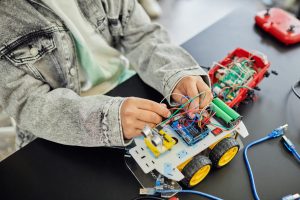Programs Supporting First-Generation Students in Higher Education
College can be a daunting experience for any student, but for first-generation students it can often be even more challenging. These students, who are the first in their families to attend college, face unique obstacles and may not have the same level of support or resources as their peers. However, there are many programs and initiatives in place to help first-generation students succeed in higher education. In this article, we will explore some of the top programs supporting first-generation students and how they are making a difference in their academic journeys.
The Importance of Supporting First-Generation Students
First-generation students face a variety of challenges when it comes to navigating the world of higher education. Many come from low-income families and may lack the financial means to afford college. Others may struggle with the academic demands, as they may not have the same level of preparation or access to resources as their peers. Additionally, these students may not have family members who can provide guidance and support, leading to feelings of isolation and overwhelm.
Despite these challenges, first-generation students bring unique perspectives and experiences to the college setting, enriching the learning environment for all students. It is crucial that we support these students and provide them with the resources and tools they need to succeed in college and beyond.
Programs Supporting First-Generation Students
1. TRIO Programs
The TRIO programs, funded by the U.S. Department of Education, aim to provide academic support and assistance to disadvantaged students, including first-generation students. These programs offer services such as tutoring, financial aid guidance, and academic advising to help students navigate the challenges of college. TRIO programs have been proven to improve graduation rates for first-generation students, making them a valuable resource for those in need of extra support.
2. First-Generation Student Organizations
Many colleges and universities have established organizations specifically for first-generation students. These student-run organizations provide a sense of community for first-generation students and offer resources and support for academic success. They also offer opportunities for networking and connecting with other first-generation students, creating a support system on campus.
3. First-Generation Scholarships
Financial barriers are one of the biggest challenges faced by first-generation students. However, many colleges and organizations offer scholarships specifically for first-generation students. These scholarships can help to alleviate the financial burden and allow students to focus on their studies without the added stress of paying for tuition and other expenses.
Success Stories
The impact of these programs and initiatives can be seen through the success stories of first-generation students. For example, the University of California, Riverside hosts the First Generation Mentor Program, which pairs first-generation students with faculty or staff members who were also first-generation students. This program has proven to increase retention and graduation rates for first-generation students at the university.
In addition, the First-Generation Student Success Program at the University of Maryland, Baltimore County provides first-generation students with a comprehensive support system that includes academic coaching, peer-mentoring, and career counseling. This program has helped first-generation students at UMBC graduate at a higher rate than the overall student body.
Conclusion
The transition to college can be overwhelming for any student, but it can be particularly challenging for first-generation students. Thankfully, there are many programs in place to support these students, providing them with the resources and guidance they need to succeed in higher education. It is crucial that we continue to recognize the importance of supporting first-generation students and work towards creating a more inclusive and equitable environment for all students.










